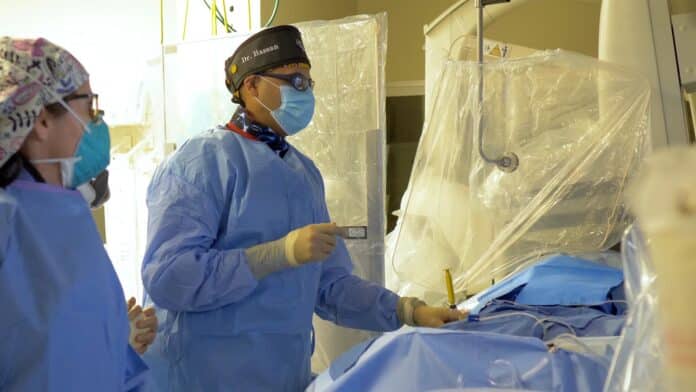
HARLINGEN — It’s National Stroke Awareness Month, with a touch of COVID-19.
While medical establishments everywhere are recognizing stroke awareness as they do each May, this year the message is especially urgent because of COVID-19.
Why?
Because COVID-19 can result in strokes, which can result in death if not treated quickly.
And the best way to keep from having a stroke from COVID-19 is by getting vaccinated, says Dr. Ameer Hassan, head of the neuroscience department at Valley Baptist Medical Center – Harlingen.
“ I think the biggest concern is, everybody is talking about the vaccines and the risk of blood clots in the brain,” Hassan said. “What they need to understand is that if you have a blood clot in the brain, the chance of you getting that blood clot in the brain secondary to a vaccine is four per million. That’s how rare that is.”
Hassan pointed out that while four per one million people will have a blood clot from the vaccine, about 40 per million will have the clots if they get COVID-19.
Basically, if you do the math, the math doesn’t justify the panic about the clots, experts say.
People are still hesitant to go to hospitals with stroke symptoms for fear of getting COVID-19.
“ I think everybody needs to understand that hospitals are safe,” Hassan said. “The chance of you getting COVID in the hospital is extremely low. If you do have any stroke symptoms we can provide treatment and potentially prevent death and disability versus if you just stay at home because of your fear of COVID.”
Now, as for stroke care itself, Hassan reminded people to look out for the signs. Those signs can be remembered as an acronym: “BEFAST.”
B is for balance if they have trouble walking. E is for eyes if they see double vision or blurry vision. F is for face if they have facial droop. A is for arm or leg weakness. S is for speech if they have slurred speech, and T is for time to call 911.
“The top causes of stroke in the Rio Grande Valley is uncontrolled hypertension, diabetes, obesity, and lack of exercise,” Hassan said. “People should be listening to their doctors, taking their blood pressure meds, cutting their carbs, making sure to take all their appropriate medications, and exercise.”




